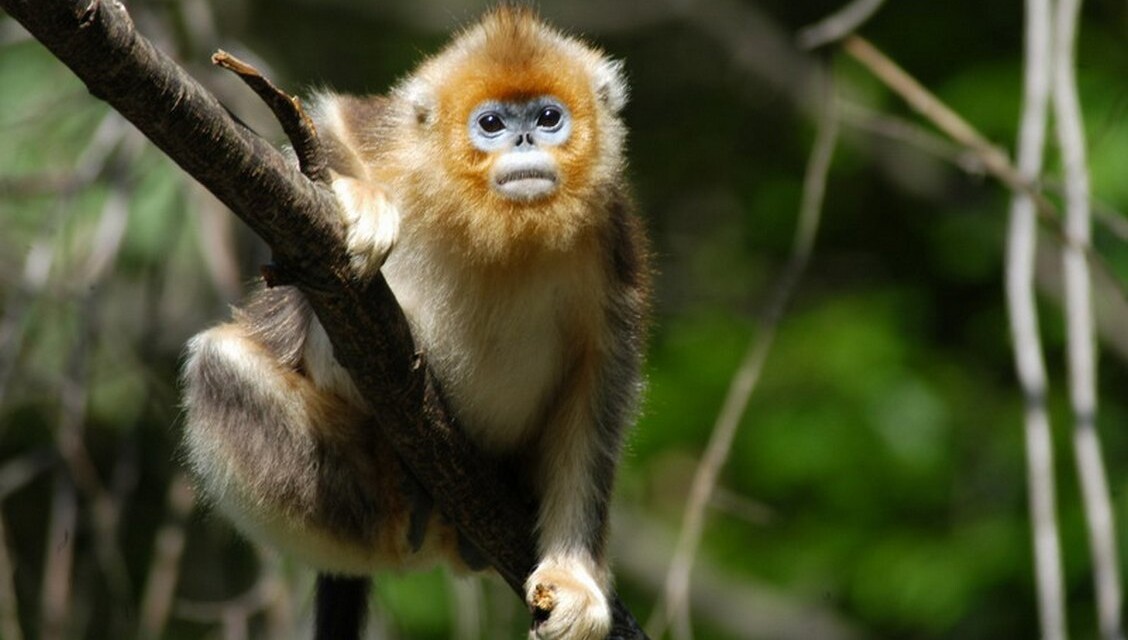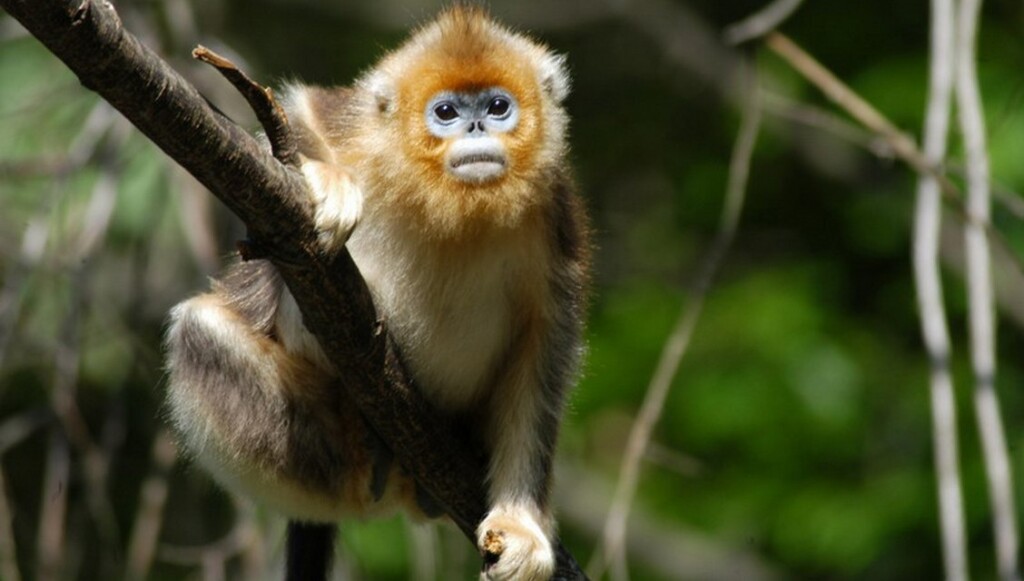 A golden snub-nosed monkey in Tanjiahe National Nature Reserve, Sichuan Province – credit, David Blank CC BY-NC-SA 3.0.
A golden snub-nosed monkey in Tanjiahe National Nature Reserve, Sichuan Province – credit, David Blank CC BY-NC-SA 3.0.
From the BBC comes the story of an intrepid and dedicated scientist who has spent decades working in China’s mountain forests in an effort to protect and understand one of the nation’s most amazing animals.
The golden sub-nosed monkey is revered alongside the giant panda as “national treasures” of Chinese wildlife, yet this couldn’t protect them from logging and hunting that followed in the wake of Mao’s Cultural Revolution.
Members of this sub-species located in the UNESCO-listed Shennongjia mountains of Hubei Province, were the subject of intense study by Professor Yang Jingyuan, a research ecologist who arrived in these mountains in 1991.
For Yang, the golden sub-nosed monkey was Jane Austin’s chimpanzees. By the time Yang arrived in Shennongjia, the population had collapsed to just 500 or so individuals across 6 family groups. Years of illegal logging as a form of subsistence living had reduced forest coverage in the mountains to 63%.
But before Yang could protect the animals, he had to first learn to understand them. With his research colleagues, he began striking out into the newly-created Shennongjia Forest Reserve to study these incredible animals.
The monkeys were at first so wary of humans that Yang and his team had to stay half a mile away to be able just to observe the monkeys in their habitat. Eventually though, with repeated encounters, half a mile became and quarter mile, and a quarter mile became 200 yards, 100 yards, 20 yards—until Yang and whoever he brought with him were accepted by the troupes.
The BBC’s China Correspondent, Stephen McDonell, experienced this treatment as baby monkeys and curious juveniles climbed all over him on a visit to special, 100 square kilometer monkey zones hat are off-limits to the hundreds of thousands of visitors who come to enjoy a mountain ecosystem that is without exaggeration unique in the world.
“Even after logging was banned there were still people illegally felling timber. If they didn’t cut down trees, how would they have money?” Professor Yang, director of the Shennongjia National Park Scientific Research Institute, told McDonell.
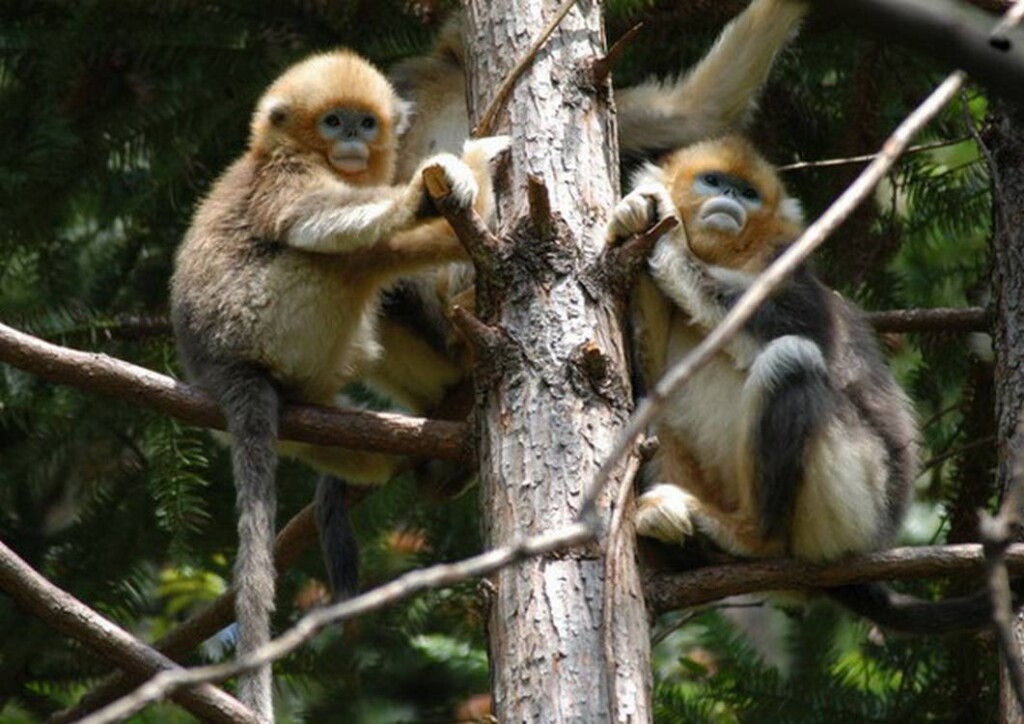 Golden snub-nosed monkeys in Tanjiahe National Nature Reserve, Sichuan Province – credit, David Blank CC BY-NC-SA 3.0.
Golden snub-nosed monkeys in Tanjiahe National Nature Reserve, Sichuan Province – credit, David Blank CC BY-NC-SA 3.0.
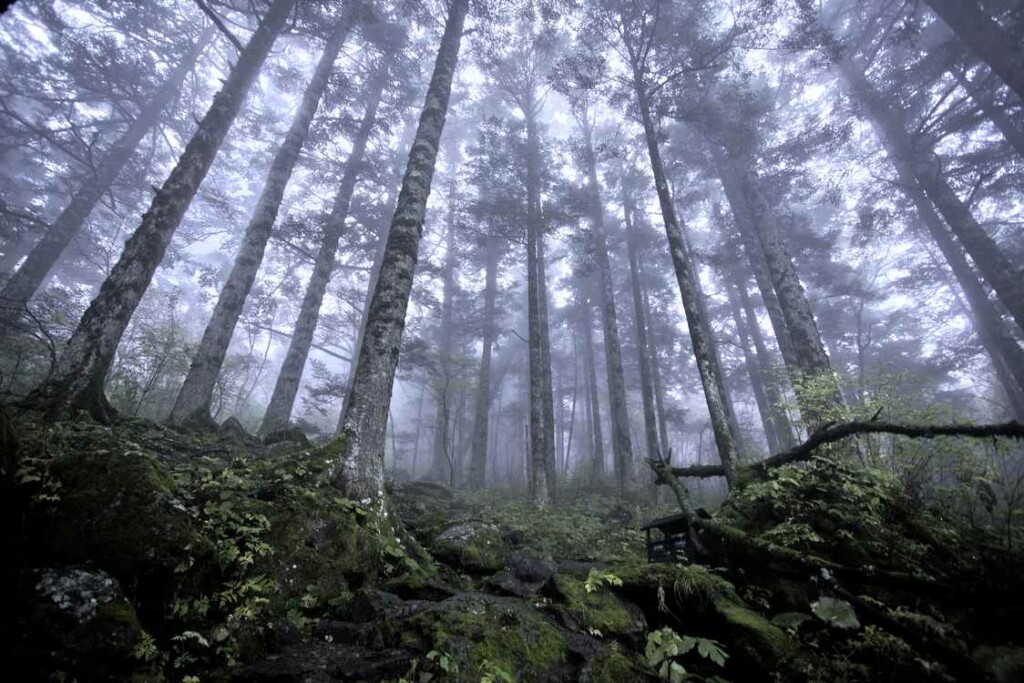 Shennongjia virgin forest – credit, Evilbish CC BY-SA 3.0
Shennongjia virgin forest – credit, Evilbish CC BY-SA 3.0
“There were also people secretly hunting here to survive. It was only after a long period of building awareness that the consciousness of local farmers changed.”
In the 1990s, with a shifting focus from forestry to forest conservation, local residents eking out this subsistence living were offered government money to relocate so that the forests could regrow. Many accepted the offer, and now benefit from the tourism boom the mountains are experiencing.
There is no place on Earth that has greater biodiversity of deciduous woody plants than Shennongjia, and a dizzying 3,400 higher-order plant species, and over 600 invertebrates have been recorded there. The golden snub-nosed monkey is very much a fuzzy golden cherry on top of a biodiverse cake ten layers-high.
“I’m very optimistic,” said Prof Yang. “Their home is now very well protected. They have food and drink, no worries about life’s necessities and, most of all, their numbers are growing.”
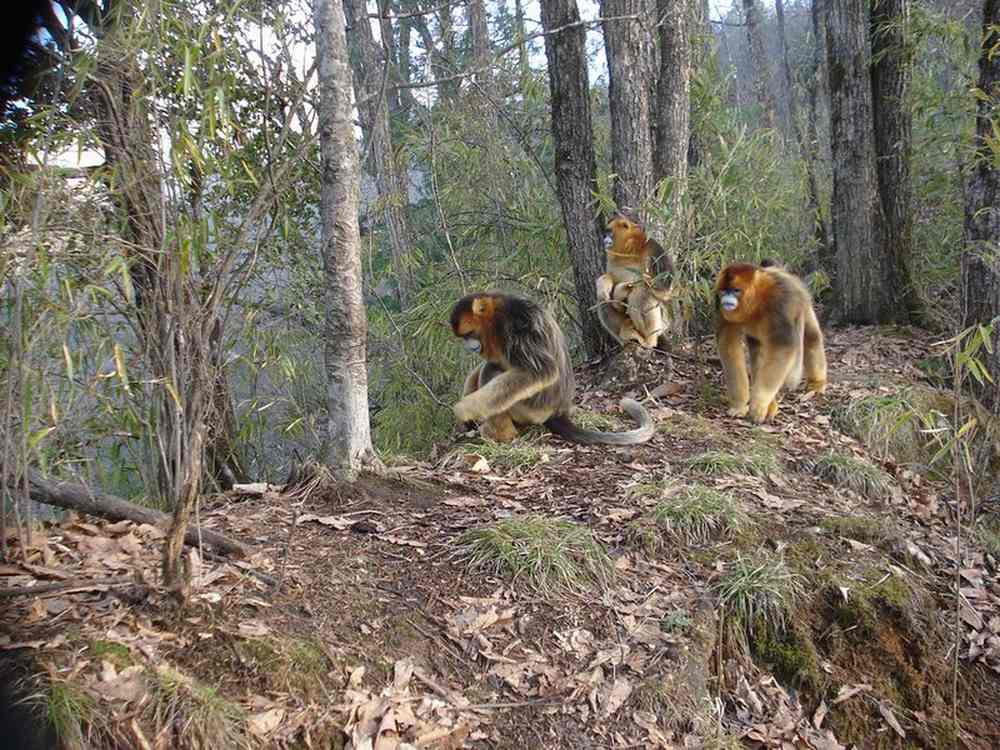 Golden snub-nosed monkeys captured via camera trap – credit, eMammal CC 2.0. via Flickr
Golden snub-nosed monkeys captured via camera trap – credit, eMammal CC 2.0. via Flickr
Indeed, an archived report from Xinhua claimed that those 500 remnant individuals became 1,200 by 2013. This represents major progress since females give birth to only one baby at a time.
At the time McDonell visited, their numbers had jumped again to 1,600, and forest cover along the hills and valleys had increased to around 96% of the reserve’s total area.
ALSO CHECK OUT: China Achieves ‘Excellent’ Water Quality in 90% of Rivers and Lakes, Now Looks to Improve Whole Ecosystems
Professor Yang can live freely among them like some character of fable. He speaks to them in their calls, having learned the meanings of each vocalization during his many years of observing them.
Like Austin, his research has yielded incredible insights into their lives. For example, each monkey has an egg timer-like understanding of its lifespan, and when it’s time to pass away, they silently leave their families behind and visit special, secluded areas to die alone in the forest.
MORE MONKEY BUSINESS: In the Amazon, One Woman’s Ingenious Canopy Bridges Are Helping Monkeys Cross the Road Safely
According to Yang, there hasn’t been a single successful attempt to find these sites, either by researchers or rangers.
Yang’s institute estimates that the monkeys will come to number 2,000 individuals in Shennongjia sometime over the next 10 years, a testament to the magnificent outcomes conservation can provide, providing there’s someone in the right place at the right time to make the effort to make a difference.
SHARE This Amazing Story Of A Man, A Monkey, And The Mountains…

